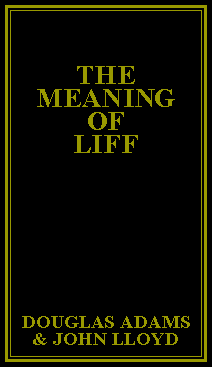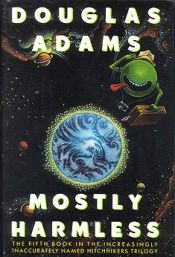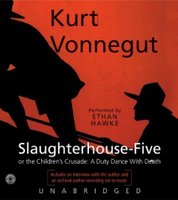A JOURNEY TO THE CENTRE OF THE EARTH
By
Jules Verne
Its all about books: from classics, to hard to get including banned books and audio books














The Long Dark Tea-Time of the Soul by Douglas Adams

It is a "dictionary of things that there aren't any words for yet"; all the words listed are place names, and describe common feelings and objects for which there is no current English word. Examples are Shoeburyness ("The vague uncomfortable feeling you get when sitting on a seat which is still warm from somebody else's bottom") and Abinger ("One who washes up everything except the frying pan, the cheese grater and the saucepan which the chocolate sauce has been made in"). Read





Don't let the ease of reading fool you--Vonnegut's isn't a conventional, or simple, novel. He writes, "There are almost no characters in this story, and almost no dramatic confrontations, because most of the people in it are so sick, and so much the listless playthings of enormous forces. One of the main effects of war, after all, is that people are discouraged from being characters..." Slaughterhouse-Five (taken from the name of the building where the POWs were held) is not only Vonnegut's most powerful book, it is as important as any written since 1945. Like Catch-22, it fashions the author's experiences in the Second World War into an eloquent and deeply funny plea against butchery in the service of authority. Slaughterhouse-Five boasts the same imagination, humanity, and gleeful appreciation of the absurd found in Vonnegut's other works, but the book's basis in rock-hard, tragic fact gives it a unique poignancy--and humor.






 |







